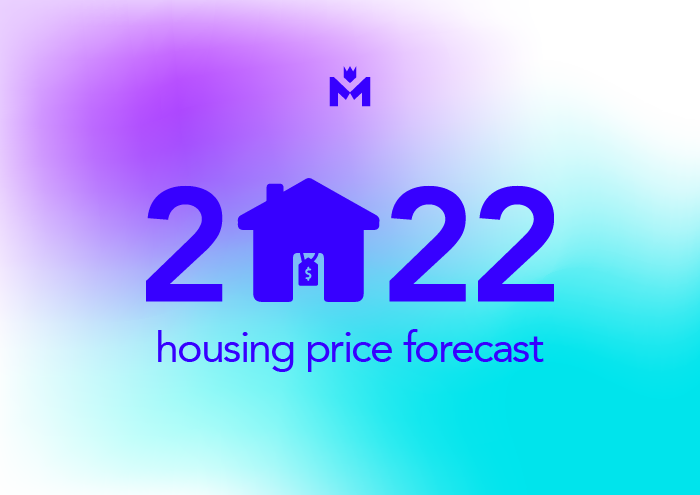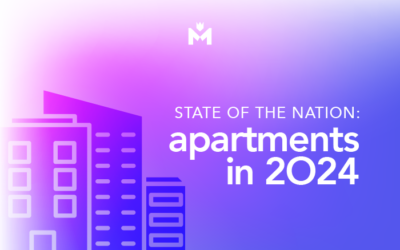We’re in October, which means we’re already forced to think about the year ahead. We have seen a few questions float around from our customers, clients, and some of our internal team members for next year.
So we’ve titled this article Housing Price Forecast for 2022. In this article, we will discuss the latest Housing Policy and its impacts, the OCR, and the overall house prices. We have also pulled in some intel from our fantastic advisers, so get ready.
Housing Price Forecast for 2022
In New Zealand, we have a problem of a housing shortage – that is that more people want houses than we can deliver, not actual properties (although this is very chicken and egg according to historical data). By not having enough properties on the market for people to buy or rent, a growing population, and people more willing to move out at a younger age, it means there’s a deficit.
As usual in a society where supply and demand will dictate price, we will see that the house prices are likely to continue to go up. However, we are facing a supply problem with issues relating to migration, tax, and people land banking, or simply not enough building supplies and tradespeople. There are many things that can impact the housing market. The cost of money (interest rates), lending criteria, unemployment, economy stability (offshore and onshore), COVID and people’s perception, and media.
Goran, our super experienced financial adviser, says last year’s big bounce back was helped by aggressive FOMO with the low rates. We think that unless something absolutely crazy happens, the Reserve Bank of New Zealand Te Pūtea Matua will likely not remove any loan-to-value ratios again, or drop the OCR further than it’s been since COVID hit our shores. There’s more optimism this time around considering how well the NZ economy has rebounded, and we think the market will pick up where it left off, albeit less aggressively than we’ve seen this and last year.
Even though you’re reading this, take all forecasts with a grain of salt. So many people got it wrong last year – with the exception of our guest speaker Ashley Church on our podcast (at least from our findings).
Updated: 17 Nov 2021 – we have seen banks raise interest rates and cement stricter debt-to-income ratios, we have a feeling that it is about to get super competitive out there. As we know, property is all about supply and demand, and at the moment we have a feeling it’s about to get tough out there. It’s not impossible by any means!
Housing Policy Updates
The updates implemented by the Government were to help out first home buyers, but as we said in our last housing policy update blog, this will only really incentivise developers and investors to be more aggressive. The thinking behind the policy is to open the doors for first home buyers and make it easier for them to get onto the market.
The change will also swing investors to purchase new build homes or off the plans which will then be rented out – by doing this the investors won’t be hit with the property tax law change as it does not apply for new builds.
Lisa is our first home buyer specialist, and knows a thing or two about getting people into their first home, and then helping them get an investment property.
“With the new housing policies, such as new tax rules for investment properties will have an affect on all existing investors and possibly affect more so the mum and dad investors. These ‘mum and dad investors’ typically have one or two rentals, and will no longer be able to deduct the interest on their borrowing which is being phased out over a 4 year period.”
Usually mum and dad investors buy property as a way to secure their financial future, or help their kids with getting on to the property ladder. The impacts are huge on successive generations as the wealth gap continues to increase. This unfortunately makes our forecast for 2022 even more frustrating.
These new tax laws are on a four-year sliding scale on tax deductibility, which will push investors to new builds, which are exempt. With this in mind, it will have an adverse effect on making housing affordable for first home buyers, investors, developers, and first home buyers will all be vying for the same properties, driving up the prices. In our blog on tax deductibility, we outline a little more detail.
Using a scenario from our financial advisers – bear with us as we get into some big numbers.
Let’s say you have rental income of $700pw which equates to $36,400p.a.
SCENARIO 1:
If your expenses for this property include the interest of the loan, with mortgage, rates, insurance, property management, etc. and that all equals $36,400pa, then you are cash neutral. You pay no tax on the income as the expenses of the property offset the income.
SCENARIO 2:
If this property is an existing property where you can’t claim the interest of the loan which equates to $25,000p.a., you are only therefore able to reduce your rental income by the remaining expenses being rates, insurance, property management etc. which in this case is $11,000. Now you are having to pay tax on $25,000.
Not ideal, really. It just makes matters more complicated. We can totally understand the Government’s justification for wanting to tax people to help bolster our economy, but for the folks that are living day-to-day, this makes it a little bit niggly.
And how about the latest on the OCR change?
As of writing this article on 13 October 2021, the OCR has risen from 0.25% to 0.50%. For the first time in seven years, this has happened. With the pressure of inflation, offshore markets, and any further volatility, we can assume the OCR will continue to rise. However, we don’t imagine a post-GFC hike of rates.
For now, keep calm and carry on.
Wait, what does the OCR change mean?
It means that the cost of borrowed money has gone up slightly. This directly affects the banks resulting in the rates they offer their customers, and what the customer gets charged for borrowing money from the bank itself via mortgages, loans, and credit cards. This will have an effect on any future borrowers in terms of their servicing ability to get any lending.
People are slowly going to be encouraged to save rather than spend as they can expect good returns on the money they invest if the OCR keeps rising. With spending reduced, the economy slows and so does inflation.
The Official Cash Rate has been increased by the Reserve Bank Of New Zealand for the first time in 7 years from 0.25% to 0.50%.
There was a lot to take in there! Hopefully now you’re caught up. It was a little vague to read, but that’s because the market is crazy during these times that we’d never expect to see happen.
As usual, everything we have written is simply to provide as much information as possible, and shouldn’t be taken as advice. If you do want advice however, we recommend you reach out to one of our financial advisers by clicking here.




